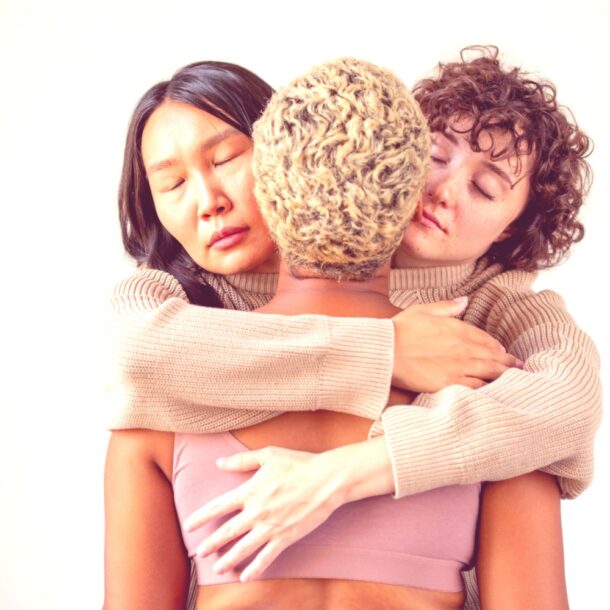

Close

Do you ever feel frustrated and overwhelmed by the emotions that emerge between you and your significant other? Do arguments leave both of you feeling depleted, unheard, or disconnected from one another? If this sounds familiar, then it’s time to talk about emotional regulation. The ability to regulate our own emotions is essential for maintaining a healthy relationship – not only with our partners but also in all types of relationships. By understanding how we react and respond to situations, we can learn better ways to manage our feelings. Whether it’s communicating effectively with a partner, releasing frustrations constructively through creative outlets, or carving out time for self-care and wellness practices – emotional regulation is key to unlocking meaningful relationships. Let’s look at why emotional regulation is so important for relationships – so jump on board the ’emotional rollercoaster’!
Emotional regulation is the healthy way to handle and manage our emotions, which is essential for healthy relationships. Developing emotional intelligence is essential for uncovering our emotions and appropriately expressing them. Through emotional regulation we’re creating a balance between ourselves and others, allowing us to better understand our needs and nurture healthy connections with other people. Furthermore, emotional regulation requires self-compassion and awareness of healthy habits that will help us regulate our emotional responses. Through the process of learning healthy strategies for emotional regulation, we can foster healthy relationships with ourselves and others by understanding what kindles our emotions and how to best handle them.
Taking excellent care of yourself is the key to managing your emotions in a balanced way. Incorporating healthy habits into your life will help you to achieve this. Nurturing self-care and self-compassion habits allow us to create healthy boundaries with ourselves, hence giving us the emotional space we need when faced with difficult emotions. The best way to regulate emotions is through healthy coping mechanisms that help us build resilience and find balance during hard times. This can include seeking help from a therapist or engaging in activities like mindfulness, yoga, meditation, or journaling. Through these various techniques, we can learn to accept challenging feelings and find ways to cultivate healthy emotional regulation. Taking time for yourself is essential when it comes to healthy emotional regulation, so above all else make sure you prioritize your self-care.
Emotional regulation in relationships is essential for success. With this skill set, partners are better equipped to understand and respond more appropriately to each other’s feelings and to calmly and compassionately resolve conflicts. Through this practice, both parties are gently reminded that we are all human and worthy of respect. When you cultivate emotional regulation skills, a secure environment is constructed where there’s no need to worry about being judged or excluded from the relationship. This connection provides an opportunity for increased communication, greater understanding and empathy, and ultimately the potential for a deeper bond between those involved. As Brené Brown famously said, “clear is kind.” Being vulnerable and staying honest with your partner promotes healthy conflict resolution while strengthening bonds. Taking the time to practice emotional regulation in relationships is always worth it!
Regulating our emotions can be a difficult task. It’s important to understand that our emotions are met with purpose, they are there as signals to indicate when something needs our attention. To tackle the challenge of regulating our emotions, we must first practice self-compassion when these difficult moments arise. We can begin by taking a pause, steadying our breath, and creating an open and kind space in which to consider how we want to respond. By validating those uncomfortable feelings and developing language around them, we are creating a sense of self-awareness that will help us to navigate through hardships more adeptly. As Brené Brown says “Compassion is about learning how to hold ourselves and others tenderly even in the midst of great strife.” So remember tonight next time your feel overwhelmed that you too can regulate your own emotions with kindness and understanding at its core.
Communication is an essential element of any relationship, and the ability to share our thoughts and emotions openly with each other is especially important. Putting into words our feelings helps us to understand ourselves and build empathy for one another. By expressing our needs in a kind, sincere manner, we can create more fulfilling relationships and reach a deeper level of understanding with one another. Good communication has the power to foster trust, understanding, and connection between individuals, creating stronger bonds that can last lifetimes.
In conclusion, emotional regulation is an essential skill that helps foster healthy relationships and self-care. Taking the time to practice awareness of our emotions with kind understanding can help us create a secure environment in which to communicate openly and build meaningful connections. By validating difficult feelings and developing language around them, we can create a safe space for ourselves and our loved ones to thrive. Remember that when it comes to emotional regulation, clear is kind—so take the time now to cultivate this important tool for yourself!
